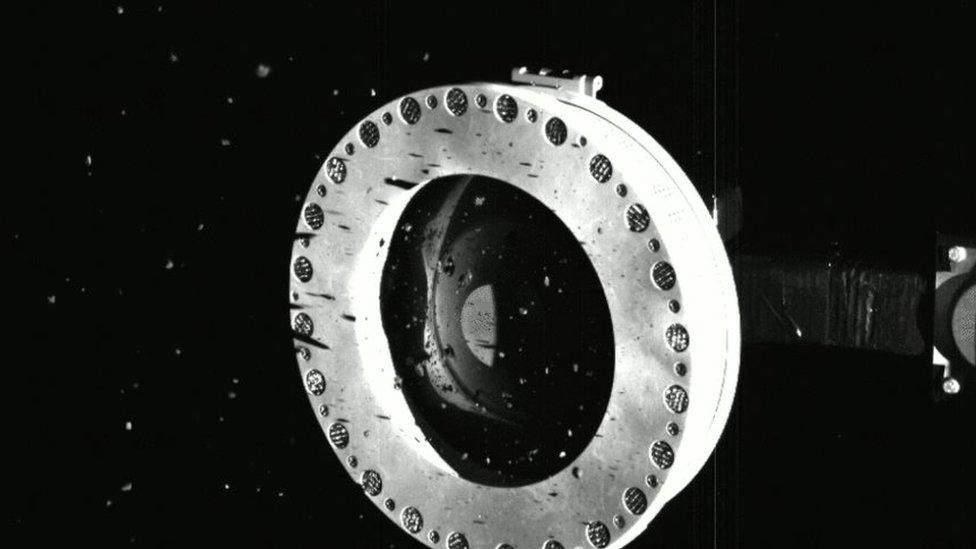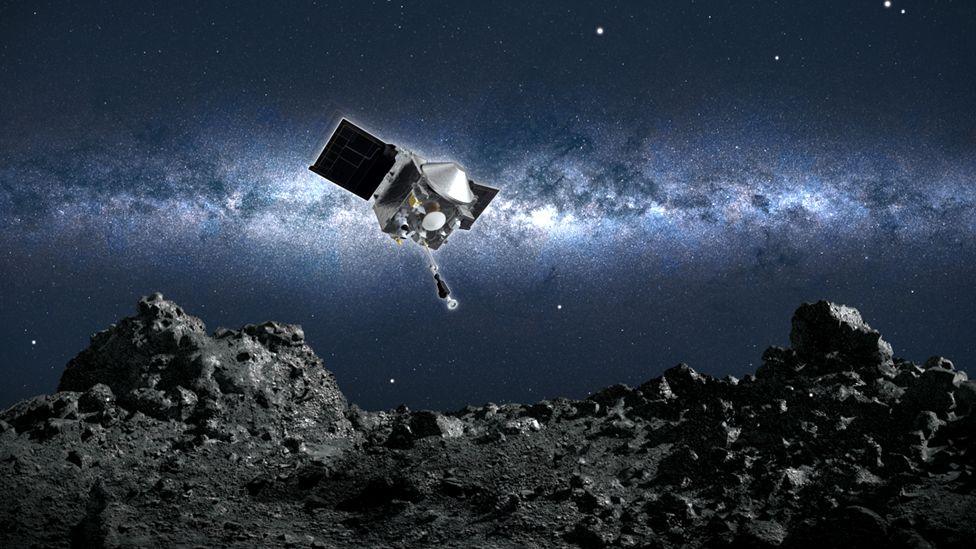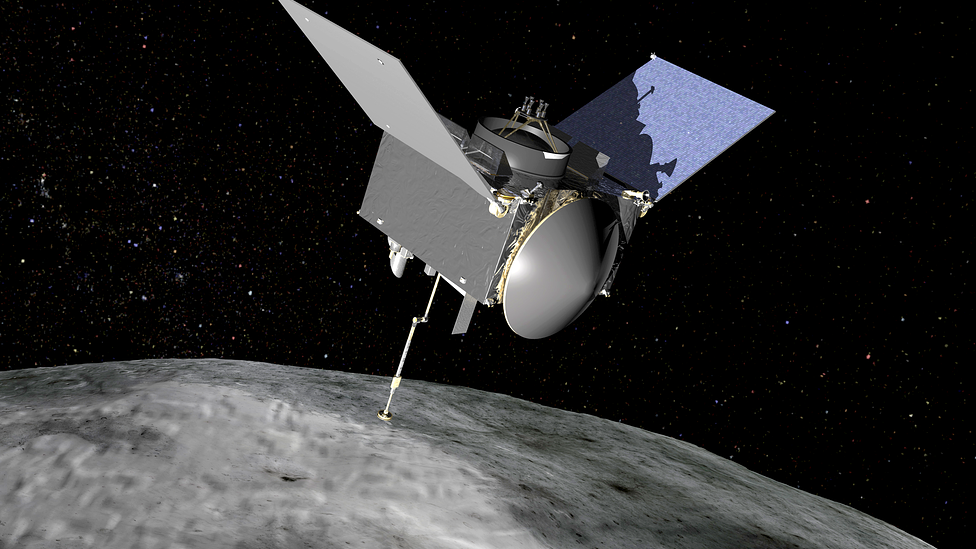Nasa: Osiris-Rex door wedged open after taking very large sample from Bennu asteroid
- Published
- comments

The mission of Nasa's Osiris-Rex was to gather a rock sample from the Bennu asteroid and bringing it back to earth for scientist to study.
In an exciting 10-second mission, experts were delighted to gather dust from a moving asteroid that could give scientists vital info about the beginning of our universe.
But it seems that the spacecraft might have got a bit over excited, and gathered so many rocks that now its door won't close properly!
Nasa officials confirmed on Friday that a rock is wedged the container door, allowing other rocks to spill back out into space.
It's got experts worried about exactly how much material will make it back to Earth.
Success! Ten-second space mission's "incredible feat"
Nasa made the discovery after images from the spacecraft beamed back to ground control revealed the leakage, with the Osiris-Rex mission team scrambling to try and get the collection device inside to prevent anything else from spilling out.
The hope of the mission was to collect 60g worth of dirt and gravel from the surface of the boulder-packed asteroid which scientists said could hold clues to how life on Earth began.
Asteroids are among the leftover debris from the solar system's formation some 4.5 billion years ago.
But it seems the robotic arm of the probe gathered a much larger sample than the team had anticipated after kicking up a debris cloud of rocks on Bennu, a skyscraper-sized asteroid around 200 million miles (320 million km) from Earth.
Instead of measuring how much material they collected as originally planned, they're skipping to the 'stow phase', a fragile process of tucking the sample collection container in a safe position within thespacecraft without jostling out more valuable material.
They say "time is of the essence" to get this process completed successfully.
Its cost $800 million to build.
Its about the same size as minivan-sized.
It launched in 2016 but has spent the last two years circling earth trying to find somewhere suitable to land.
Osiris-Rex principle investigator Dante Lauretta told reporters, "Quite honestly, we could not have performed a better collection experiment," when talking about how big the sample size collected had been.
But with the door lodged open by a rock and the "concerning" images of sample spillage, he added, "we're almost the victim of our own success here".
NASA will not know what and how much material Osiris-Rex has collected until the sample capsule returns to Earth in 2023.
- Published21 October 2020

- Published19 October 2020

